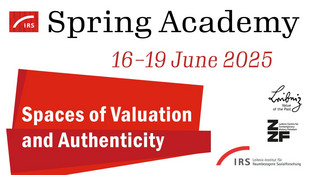Main Content
Evaluating spaces, understanding authenticity
IRS Spring Academy 2025
This year's IRS Spring Academy was dedicated to the analysis of value and authenticity in their various spatial dimensions: How do art markets work? Which architectural epochs are considered valuable in today's urban planning policy? At the end of June, a group of international early-career researchers gathered in Erkner and Potsdam to investigate these questions, exchange knowledge and build networks.
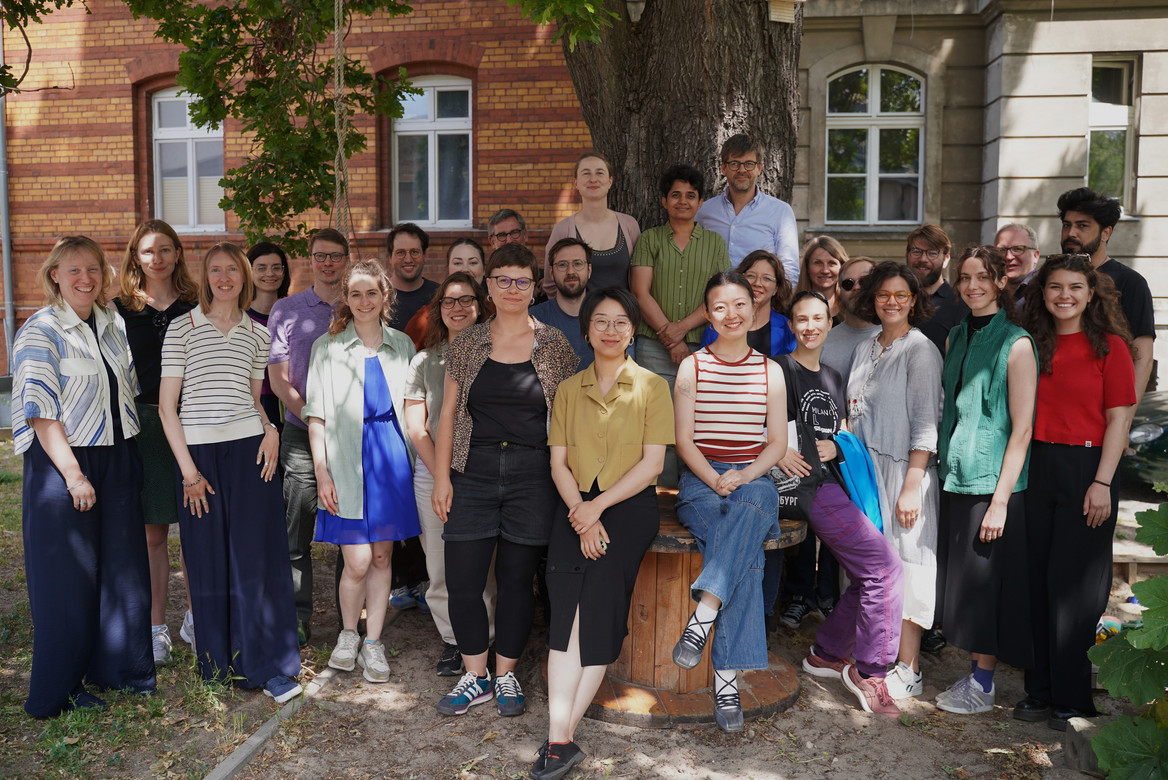
How can spatial authenticity be evaluated? This question was the focus of the Spring Academy 2025, jointly organized by the IRS and the Center for Contemporary History (ZZF) Potsdam shortly before the start of summer. The overarching theme "Spaces of Valuation and Authenticity" was inspired by the Leibniz Research Alliance "Value of the Past", to which both institutes belong. Over 20 early-career researchers spent four days in Erkner and Potsdam in an engaging atmosphere. They explored how value is attributed to spaces, humans, art, as well as the role authenticity plays in that context.
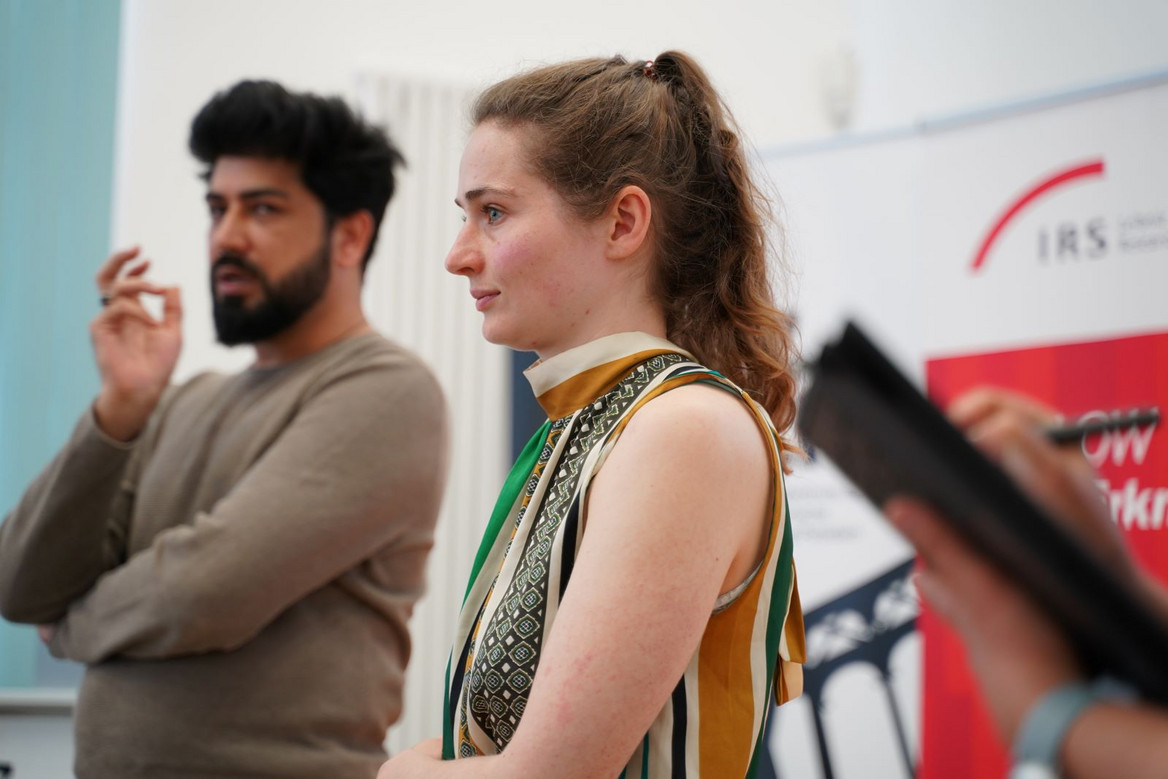
The participants were enabled to present as part of the paper pitches. In just five minutes and with one slide each, the participants introduced their research projects. The topics covered a wide range from heritage value assessments and the mechanisms of the art market to the appropriation of urban spaces by various user groups.
Two keynote lectures offered deeper insights into the overarching theme. Patrik Aspers (University of St. Gallen) introduced the concept of "arenas" – contexts where performance art, craft fairs and marketplaces are influenced by spatial spheres. Rebecca Madgin (University of Glasgow) focused on the emotional echo of historical sites and explained how this can be captured methodically.
A co-teaching workshop brought together perspectives from economics and urban planning. Björn-Martin Kurzrock (RPTU Kaiserslautern) presented professional valuation techniques, while Stefanie Brünenberg (IRS) explored emotional concepts of value in 20th-century urban development. Together with the participants, they discussed how objective and subjective standards of value relate to each other.
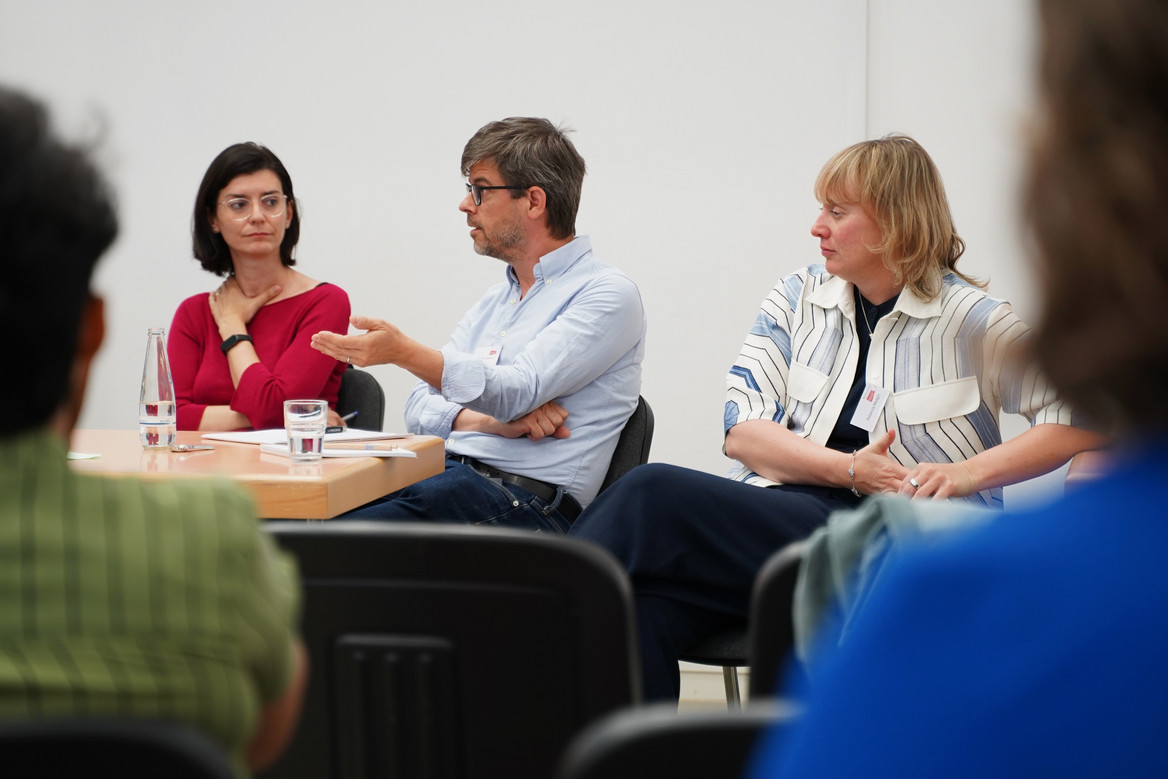
Another key focus was the everyday practice of research. In four doing research-workshops, participants discussed challenges such as dealing with time pressure, interdisciplinary collaboration, concepts of authenticity and branding within research projects. A panel discussion with the experienced scholars Patrik Aspers, Manfred Kühn, Rebecca Madgin and Cecilia Pasquinelli offered practical insights into publishing in peer-reviewed journals.
The Spring Academy concluded with one-on-one consultation sessions between participants and speakers, a format that provided space for in-depth discussions and offered targeted input for participants’ individual research projects.
A highlight was the visit to two contrasting locations in Potsdam: the rebuilt tower of the Garrison Church and the neighboring Rechenzentrum, which was a former GDR administration building that now serves as a creative center for art and culture. The close neighborhood of the two buildings made the question of spatial authenticity and social value attribution especially tangible.
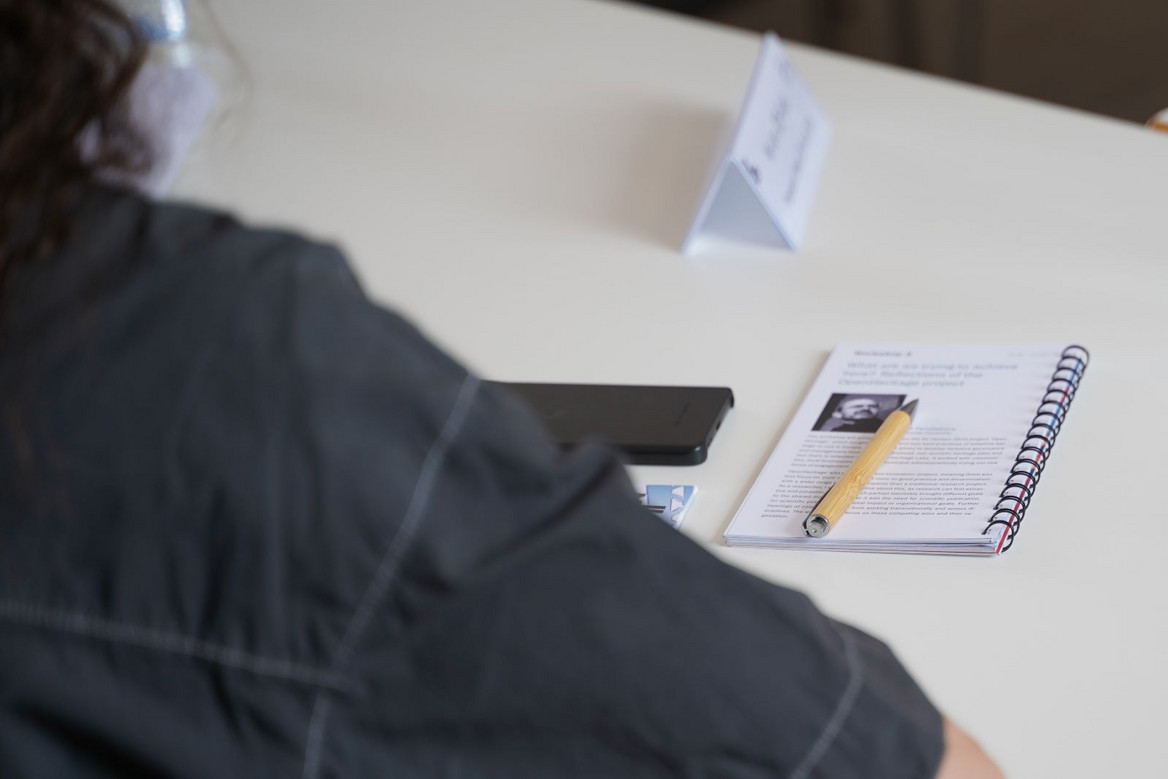
The 8th edition of the IRS Spring Academy took place from June 16 to 19 in cooperation with the Leibniz Centre for Contemporary History Potsdam (ZZF) and the Leibniz Research Alliance “Value of the Past”.


